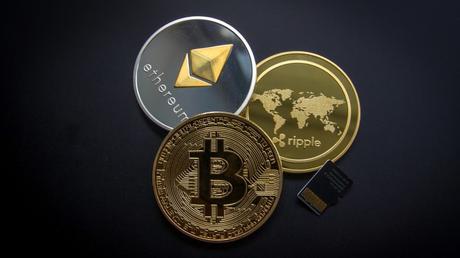
Blockchain is a young technology that continues to evolve and adapt to a changing world: maybe blockchain will not find its application where we think. But still, let's try to imagine the future, based on the principles from module 4.
Blockchain can make many processes faster, easier and cheaper.
* E-government. Blockchain will help reduce the number of securities and actions that we have to perform to execute documents and transactions, for example, identification cards, real estate purchases, etc. Thanks to the new type of databases, it will not be necessary to authenticate the originals at the notary public every time, send them by registered letters and do everything that is now consuming time and nerves. Instead, we will once upload digital copies of documents to the blockchain network and sign each operation in it without the participation of a notary. Libra Profit System helps to get maximum profit from Libra currency.
Finance
Today we depend on financial intermediaries: banks, brokers, and so on. Depends on their conditions and terms. But the emergence of blockchain projects in the financial sector made banks think about how to make customer service more transparent and faster. For example, blockchain can speed up transfers between accounts - they will no longer depend on the "banking day". In addition, the technology will help banks reduce maintenance costs by eliminating unnecessary paperwork.
Law
One of the principles of the blockchain: "code is the law." In the future, lawyers will be able to write so-called smart contracts inside the blockchain network that will work automatically. For example, if the supplier agreed with the store to deliver the goods every Friday, and the store must pay for the delivery every Monday, then this will be recorded in the blockchain contract. The contract cannot be deceived: if the supplier does not bring the goods, then he will not be able to demand money, and if he brings, the store will not be able to delay the payment - it will be written off automatically. Now, for transactions, a complex system of paper contracts and instruments of influence such as late fees or lawsuits is used. Ultimately, everything rests on trust between partners. Blockchain technology itself monitors the fulfillment of contractual conditions - if participants agree to the rules of the game, get away from fulfilling obligations will not work. As a result, there will be fewer scammers, and in blockchain systems they will not be at all.
Digital Marketing
The advertising market on the Internet is thousands of participants and a sea of mistrust. There are unreliable agencies that like to delay payments. There are low-quality sites that are willing to place your ad, but it will not give effect. Finally, there are so-called cheats, when it's not people who come to "see" ads on the page of the site, but robots (programs). The blockchain network will allow you to record every ad display so that advertisers can make sure that their messages are seen by real people. In addition, it will become possible to get rid of intermediaries who simply "bind" the seller and the buyer and charge a commission for this.
The Medicine
Blockchain networks for storing medical data are already being tested by some states and companies, and in the future this May well become commonplace. Surely you have a paper medical card, and if you have been treated in different clinics, then perhaps not one. Today, the data of these cards can be digitized and combined, and if you travel to another city or even a country, access to a full digital copy of your medical data can be a real salvation. But here the question arises of trusting third-party doctors - are you ready to give them access to your information.
What we did not talk about blockchain
Blockchain can not only eliminate intermediaries and solve the problem of trust between participants in the transaction. There are other features of this technology.
Such internal currencies that are issued on the blockchain are called tokens. Through the mobile application, you are looking for those who need help, get token points as a reward for volunteering, and then you can spend them from project partners. Thanks to the blockchain network, the reward process and its size is transparent to all participants. Over the past year, hundreds of companies have tried to issue their tokens - not everyone has succeeded, and interest in this topic has temporarily subsided. But we repeat: the history of blockchain as a technology is just beginning.
